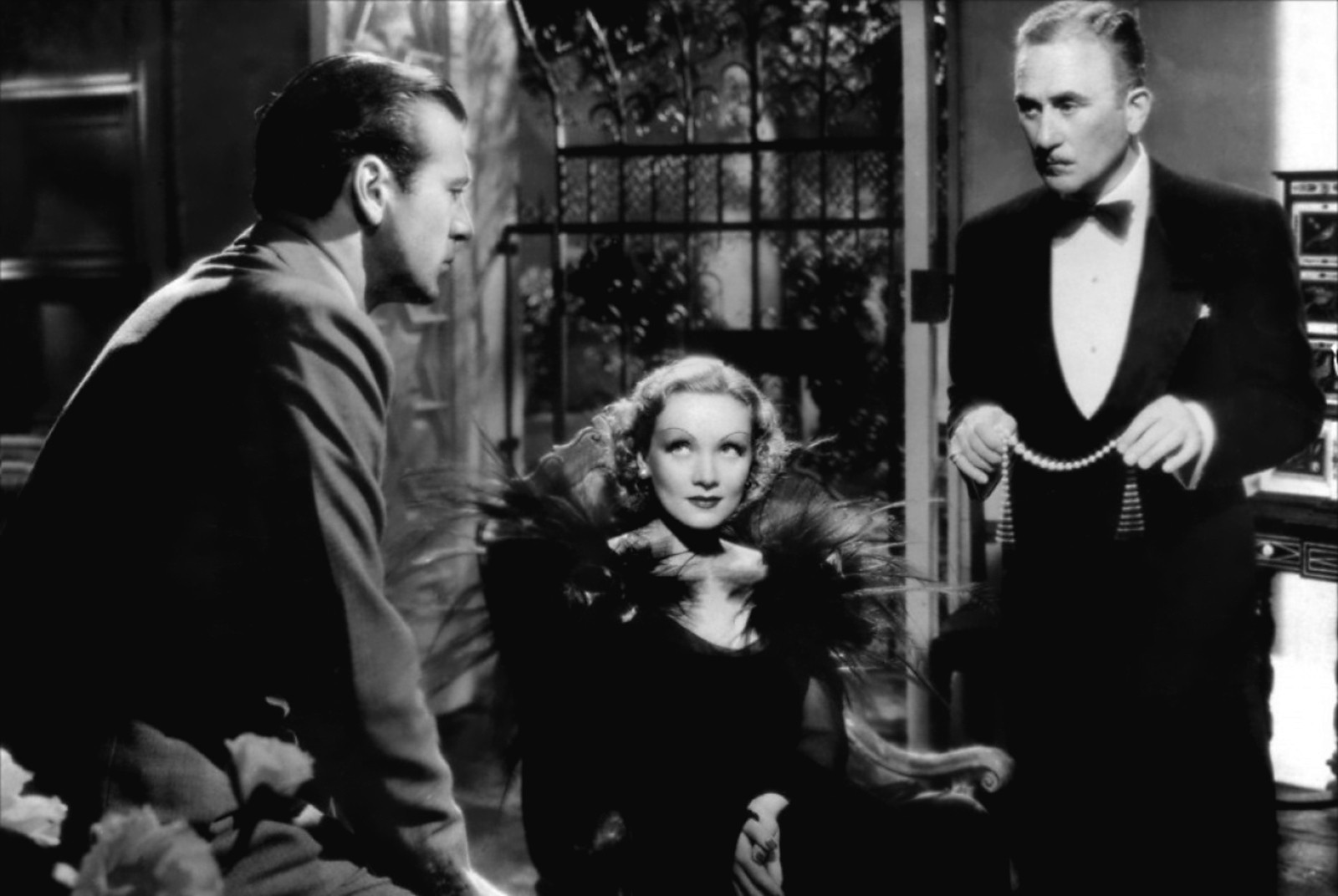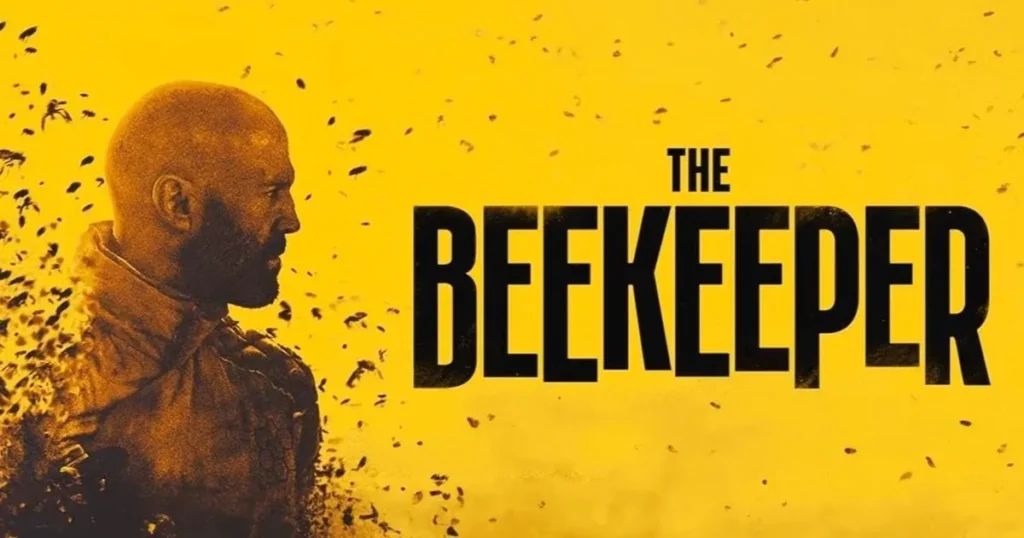Frank Borzage’s Desire is a refreshing change of pace for Marlene Dietrich at this point in her career, and her second pairing with Gary Cooper is delightfully spry and appealing.
The Production: 4/5
Marlene Dietrich and Gary Cooper are reunited as a screen couple in Frank Borzage’s delightful romantic comedy Desire, their first film together since co-starring in Josef von Sternberg’s Morocco. The tone and temperament of Desire are leagues away from their earlier encounter together, and the continental sheen present in Desire, contributed by its producer Ernst Lubitsch as much as from its two-time Oscar-winning director, give the film an elegance and sophistication that are pretty irresistible.
In a clever scheme of disguises, Madeleine de Beaupre (Marlene Dietrich) makes off from Paris to Spain with $2 ¼-million worth of pearls in a gang heist headed by Carlos Margoli (John Halliday) and a confidence woman known as Aunt Olga (Zeffie Tilbury). Her path crosses with American ex-patriate Tom Bradley (Gary Cooper) on his first vacation in years traveling to Spain. Afraid the customs officials will find the necklace on her, she slips it into his sports jacket and then must find a way to retrieve it once they land in San Sebastian. There they begin to fall for one another, but what can she do about that pesky necklace: wanted by the French police and now too hot for her accomplices to unload?
The Edwin Justus Mayer-Waldemar Young-Samuel Hoffenstein screenplay is based on a play by Hans Szekely and R.A. Stemmle which had already been filmed in Germany a few years earlier, but here it’s given a champagne and caviar treatment that allows its stars but particularly Dietrich a chance to literally spread her wings and fly without the heavily melodramatic trappings and martinet-like control of her former mentor von Sternberg. Here, even when characters are at odds (some funny nonsense with a car horn, more serious disruptions between the thieves), there is an ease and grace completely unknown in her von Sternberg films, and whether it’s Borzage or Lubitsch behind it, it’s the beginning of a new phase in Marlene’s career. The extended set piece at dinner and afterwards where Madeleine and Carlos make several attempts to get back the priceless necklace is one of the more beguiling sequences in any Dietrich film, abetted by an astonishing Travis Banton gown and a captivating Frederick Hollander song for La Dietrich “Tonight Is the Night,” one that would follow her through her decades of cabaret acts for the remainder of her career. And the ending is perfection: in the pre-Code era, Madelaine and Tom would have gone tripping away on a ship to nowhere, but now a jewel thief has to pay for her crime, but it’s handled so effervescently that one doesn’t mind its inevitability.
Though still dressed by Travis Banton in a series of dazzling creations (she even wears outfits to match her automobiles in her opening two scenes), Marlene Dietrich isn’t burdened by her wardrobe here as she was in her last von Sternberg effort The Devil Is a Woman, and her lightness of touch in Desire is a night and day difference from any of her previous work, obviously an actress who has been set free from her captor. Gary Cooper has a good time, too, in the film, taking the upper hand when necessary but also allowing himself to be manipulated in other scenes. His work here is a nice warm-up for his next role in Capra’s Mr. Deeds Goes to Town. John Halliday’s role as Carlos Margoli was originally slated for John Gilbert (who had heart trouble that would lead to his death), and he would have been wonderful in the part, but Halliday is no slouch either, outwardly appealing in his debonair faux persona but underneath as unscrupulous and conniving as they come lacking only that extra bit of star power Gilbert might have brought to the role. Zeffie Tilbury as the female mastermind of the gang is also an appealing performer. In smaller roles, William Frawley excels as Tom’s boss, Ernest Cossart and Alan Mowbray as the jeweler and psychiatrist who are the dupes of the robbery scheme milk their moments wonderfully, and Akim Tamiroff pops in briefly as a police official.
Video: 3.5/5
3D Rating: NA
The film’s 1.37:1 original theatrical aspect ratio has been faithfully reproduced in this 1080p transfer using the AVC codec. At its best, the picture looks marvelous with a very film-like grain structure that’s consistent throughout. Unfortunately, there is a thin scratch or two that continually appears pretty much down the center of the picture that’s a distraction every time it pops up. Black levels are deep, however, and whites in the grayscale are true with excellent contrast applied to make for an appealing picture. The movie has been divided into 8 chapters.
Audio: 5/5
The DTS-HD Master Audio 2.0 mono audio mix is era-appropriate. Fidelity is fine, and the dialogue is always clear and understandable. It’s been mixed with the Frederick Hollander music and the assorted sound effects most professionally making for a solid effort. Engineers have also done a sterling job eliminating all age-related anomalies like hiss, crackle, pops, and flutter.
Special Features: 3/5
Audio Commentaries: there are two on the disc. Film historian Samm Deighan does a better job on film analysis even though she fails to delve very deeply into the careers of some of the major supporting players. Film historians David Del Valle and Nathaniel Bell in their commentary chat have a lively back-and-forth of a more casual nature spending the first half of the film with stream of consciousness discussions about the careers of the stars but later zeroing in on the movie itself. Neither track is wholly satisfying.
Theatrical Trailer (2:50, HD)
Kino Trailers: The Song of Songs, Seven Sinners, The Flame of New Orleans, The Spoilers, Pittsburgh, A Foreign Affair, No Highway in the Sky, Witness for the Prosecution, The Lives of a Bengal Lancer, Peter Ibbetson, The General Died at Dawn, The Plainsman, Bluebeard’s Eighth Wife, Beau Geste, Unconquered.
Overall: 4/5
Frank Borzage’s Desire is a refreshing change of pace for Marlene Dietrich at this point in her career, and her second pairing with Gary Cooper is delightfully spry and appealing. Kino’s disc offers good audio and video quality and is heartily recommended for fans of the stars.
Matt has been reviewing films and television professionally since 1974 and has been a member of Home Theater Forum’s reviewing staff since 2007, his reviews now numbering close to three thousand. During those years, he has also been a junior and senior high school English teacher earning numerous entries into Who’s Who Among America’s Educators and spent many years treading the community theater boards as an actor in everything from Agatha Christie mysteries to Stephen Sondheim musicals.
Post Disclaimer
Some of our content may contain marketing links, which means we will receive a commission for purchases made via those links. In our editorial content, these affiliate links appear automatically, and our editorial teams are not influenced by our affiliate partnerships. We work with several providers (currently Skimlinks and Amazon) to manage our affiliate relationships. You can find out more about their services by visiting their sites.






Similar threads